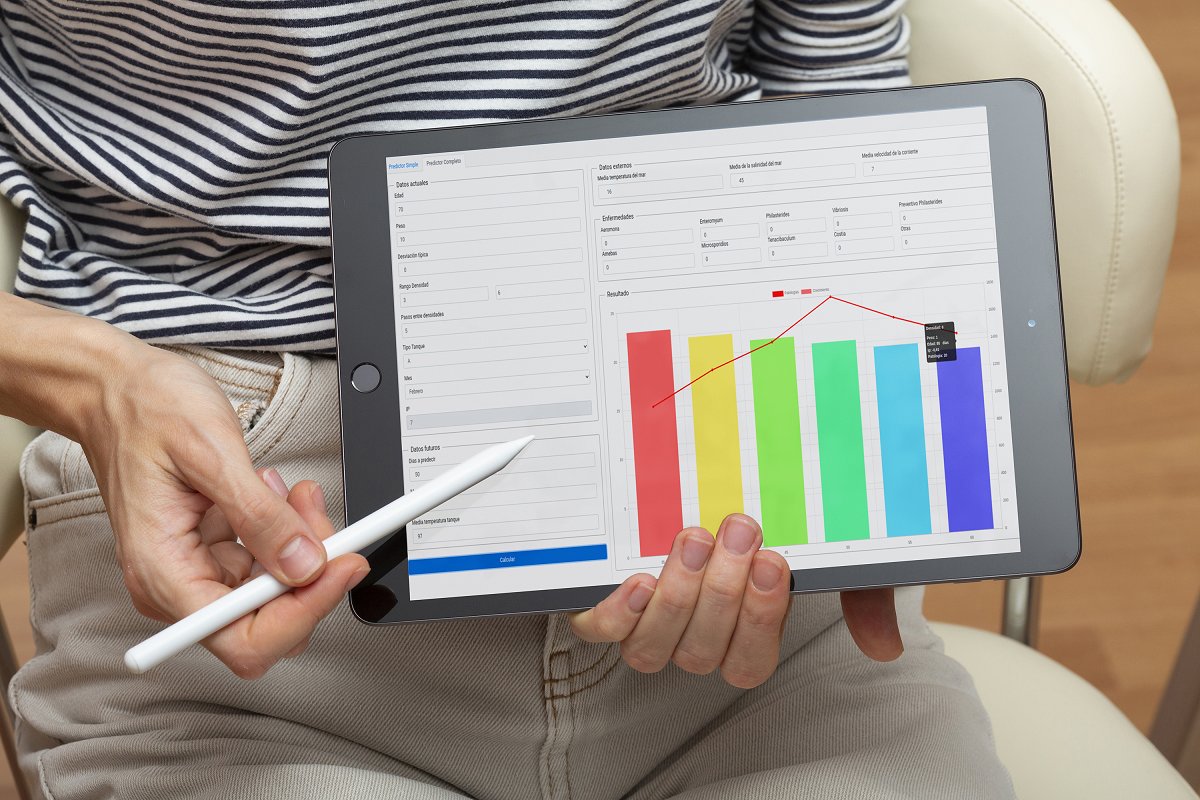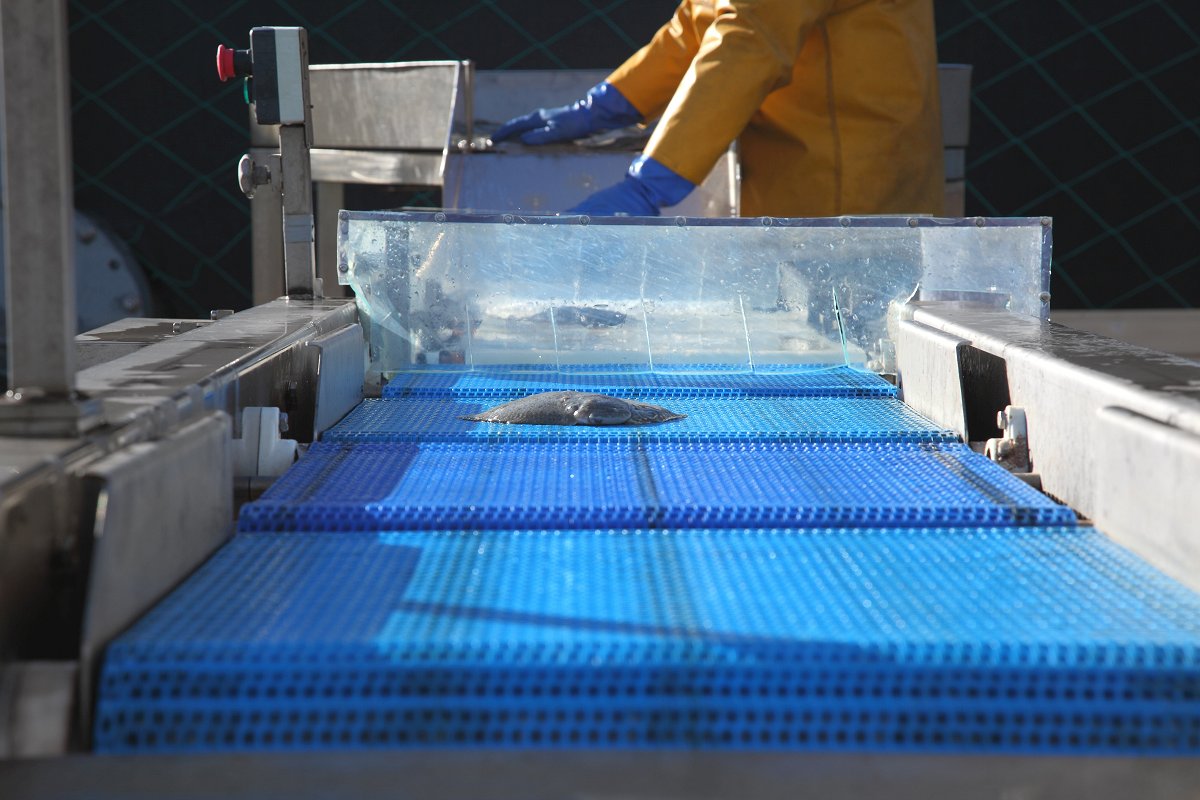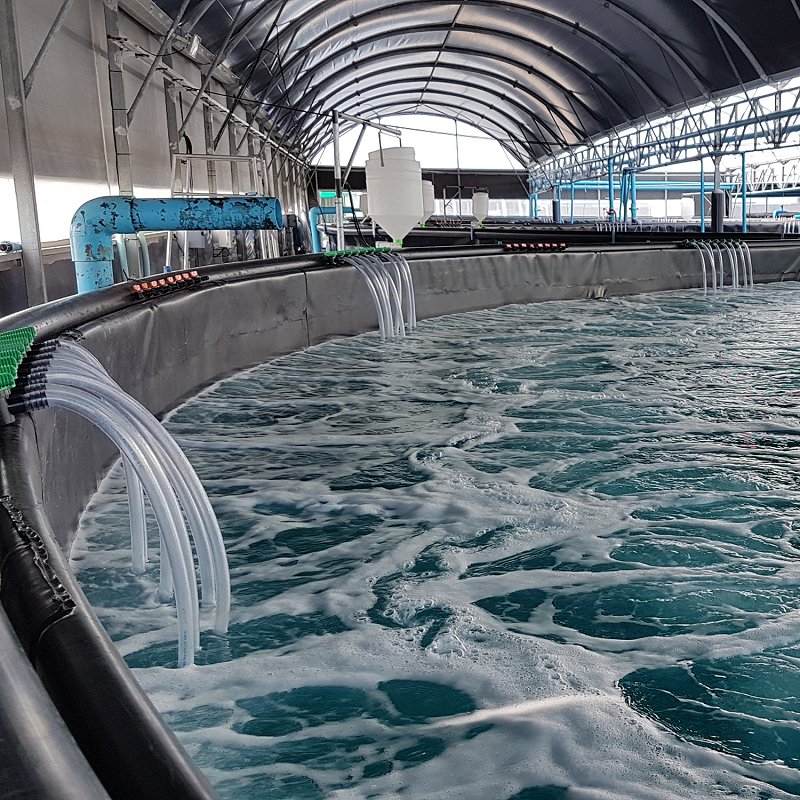Improvement of Productivity in Aquaculture
In aquaculture, lots of parameters can influence the survival and growth of fish (temperature, salt, oxygen, nutrients…). The lack of control and knowledge of the information that influences growth means the loss of millions of dollars and specimens. In aquaculture, just a few hours can make or break fish health.
Artificial Intelligence applied to data analytics empowers the understanding of what influences fish behavior, wellness and growth.
SECTOR: Agriculture
TECHNOLOGY USED: HPC, AI, Edge Computing
COUNTRY: Spain
The challenge
In aquaculture, fish growth and mortality are affected by highly volatile environmental conditions such as tides, temperature, salt levels, water nutrients. This can result in losses to businesses of millions of Euros. Therefore, it is vitally important to analyse relevant data for fish growth and welfare as quickly and accurately as possible, to avoid mortality and maximize fish growth.
Improving the ability of aquaculture farms to handle volatility, and so increase productivity, requires the centralised and rapid analysis of millions of productive, genetic, environmental, and biological data.
Enabling use of HPC for these analyses would allow these companies to have customized data-driven decision tools, with near-immediate predictive results, to carry out improvement or preventive actions that translate into improved productivity.
The solution
Precision aquaculture technology for monitoring and control of fish farms has the potential to transform the aquaculture industry, making traditional aquaculture activities more efficient and economical. HPC and Artificial Intelligence applied to data analytics empower the understanding of what influences fish behaviour, wellness, and growth, and allow aquaculture managers and operators to make data-driven decisions to prevent fish losses and achieve business stability or growth. HPC has improved ACUATIA, a DEICOM decision-making tool for managers and operators of aquaculture facilities, that is :
- A fish farm software for data gathering and visualisation.
- An expert system to create custom Artificial Intelligence models from each facilities' data to generate predictive and real-time data analytics.
- An online cloud management system to store, manage, and update data analytics.
Business impact, Social impact, Environmental impact
The food industry is challenged to feed a growing world population of 8 billion. Precision aquaculture contributes in a very important way to a healthy human diet while improving animal welfare in the farms, reducing food waste, and avoiding overexploitation of marine resources.
The business impact for aquaculture is direct and significant: the faster growth of the fish, through optimized aquaculture management means that the appropriate sales-weight is reached 2 months early. This also has a positive environmental impact: the reduction of the sale age by 2 months leads to a proportional reduction in saltwater consumption, oxygen usage, and electricity consumption. Furthermore, because of the new accurate and faster growth predictions, the commercial department has more reliable information about the fish that they can offer to their customers and stock breaks (highly undesirable), are prevented.
Data analysis service providers can adopt the approach taken in this experiment to enhance their service offerings through improved predictive capabilities and faster development of customized predictive tools.
Benefits
- Deicom: 30% reduction in predictive model error through HPC.
- Deicom: Shortening time to production in new user facilities or new procedures by 50%.
- Insuiña, Geneaqua: Business know-how for data-driven decisions for aquaculture farmers.
- Insuiña: 7% improvement in fish growth for the end user.
Organisations involved:
End Users: Nueva Pescanova- Insuiña and Geneaqua
Technology provider: DEICOM
HPC provider: CESGA




